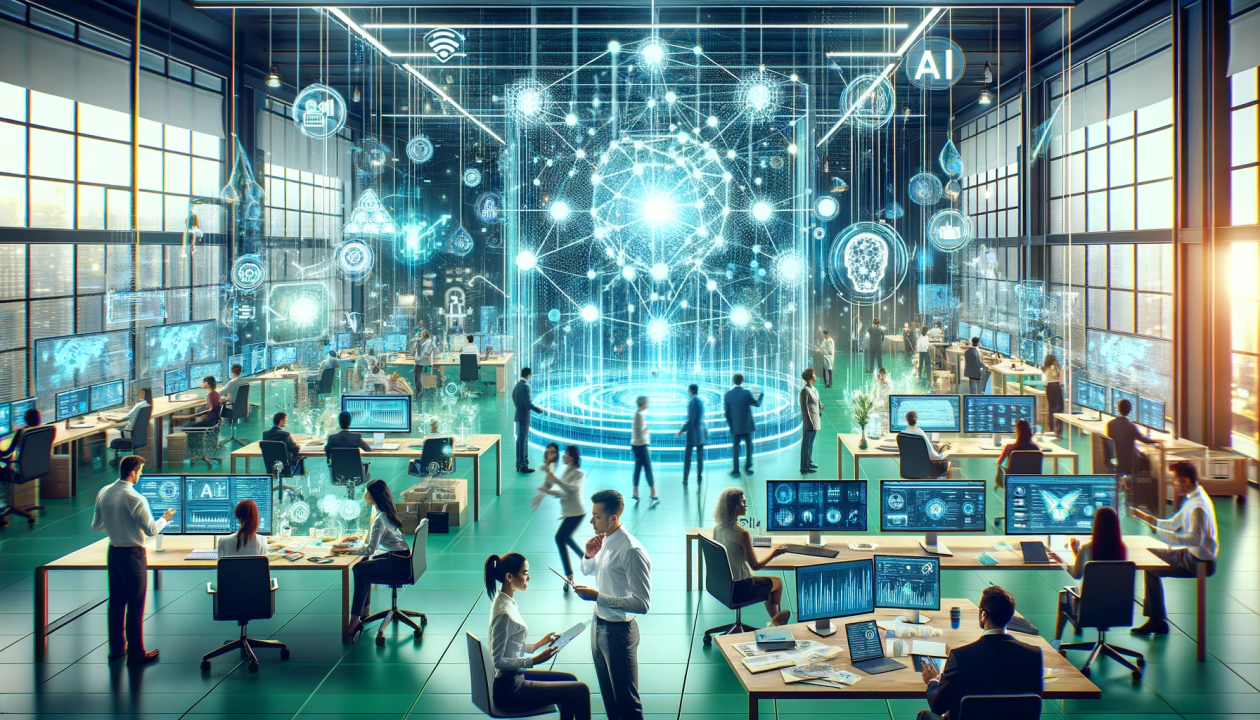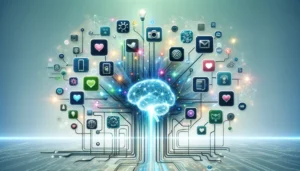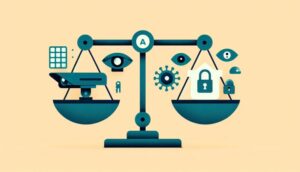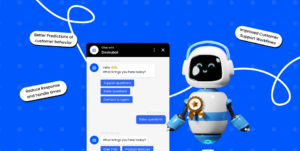AI-Driven Marketing Automation: Revolutionizing Customer Engagement

In today’s fast-paced digital world, businesses are constantly seeking innovative ways to engage with customers, streamline their operations, and maximize their marketing efforts. One of the most transformative developments in this area is AI-driven marketing automation. By leveraging artificial intelligence, companies can automate and optimize their marketing processes, leading to more personalized customer experiences, improved efficiency, and increased ROI. This blog explores the key components of AI-driven marketing automation, its benefits, and its impact on modern marketing strategies.
AI-driven marketing automation combines the power of artificial intelligence with automated marketing processes. This integration allows businesses to analyze vast amounts of data, predict customer behavior, and deliver targeted content at the right time. The core elements of AI-driven marketing automation include data collection and analysis, predictive analytics, personalized content delivery, and performance measurement.
Data collection and analysis are fundamental to AI-driven marketing automation. Modern marketing platforms can gather data from various sources, including websites, social media, email campaigns, and customer interactions. AI algorithms then process this data to identify patterns and trends, providing valuable insights into customer preferences and behaviors. By understanding these patterns, businesses can segment their audience more effectively and tailor their marketing strategies to meet specific needs.
Predictive analytics is another crucial component of AI-driven marketing automation. By analyzing historical data, AI models can predict future customer behaviors and trends. For example, predictive analytics can forecast which customers are likely to make a purchase, identify the best time to send marketing messages, and determine the most effective channels for engagement. This foresight allows marketers to be proactive rather than reactive, leading to more successful campaigns and higher conversion rates.
Personalized content delivery is where AI-driven marketing automation truly shines. Traditional marketing often involves generic messages sent to a broad audience, resulting in lower engagement rates. In contrast, AI can create highly personalized content based on individual customer data. By analyzing customer preferences, purchase history, and browsing behavior, AI can generate tailored messages that resonate with each customer. This level of personalization increases the likelihood of engagement and conversion, as customers receive relevant content that meets their specific needs and interests.
Performance measurement and optimization are essential for any successful marketing strategy. AI-driven marketing automation platforms provide real-time analytics and reporting, allowing businesses to track the performance of their campaigns and make data-driven decisions. AI can identify which strategies are working and which are not, enabling marketers to adjust their tactics accordingly. This continuous optimization ensures that marketing efforts are always aligned with business goals and customer expectations.
The benefits of AI-driven marketing automation are numerous and impactful. One of the most significant advantages is increased efficiency. By automating repetitive tasks such as email marketing, social media posting, and data analysis, businesses can save time and resources. This efficiency allows marketing teams to focus on more strategic activities, such as creative content development and customer relationship management.
Another key benefit is enhanced customer engagement. AI-driven marketing automation enables businesses to deliver personalized experiences at scale, fostering deeper connections with customers. Personalized content not only captures the attention of customers but also builds trust and loyalty. As a result, businesses can improve customer retention rates and drive long-term growth.
AI-driven marketing automation also leads to higher ROI. By optimizing marketing efforts and targeting the right audience with relevant content, businesses can increase conversion rates and revenue. The ability to measure and analyze campaign performance in real-time further contributes to better ROI, as marketers can quickly identify and rectify any issues.
Moreover, AI-driven marketing automation supports data-driven decision-making. The insights provided by AI algorithms enable businesses to make informed choices about their marketing strategies. This data-driven approach minimizes the risks associated with marketing campaigns and maximizes the potential for success.
The impact of AI-driven marketing automation on modern marketing strategies is profound. It has shifted the focus from mass marketing to personalized marketing, where the customer is at the center of every decision. Businesses are now able to understand their customers on a deeper level, anticipate their needs, and deliver relevant content that drives engagement.
Furthermore, AI-driven marketing automation has democratized access to advanced marketing capabilities. Small and medium-sized businesses can now leverage AI technologies that were once only available to large enterprises. This democratization levels the playing field, allowing businesses of all sizes to compete effectively in the digital marketplace.
The future of AI-driven marketing automation is promising, with continuous advancements in AI and machine learning technologies. As these technologies evolve, we can expect even more sophisticated tools and capabilities. For example, natural language processing (NLP) and sentiment analysis will enhance the ability to understand and respond to customer emotions. Predictive modeling will become more accurate, enabling hyper-personalization and more precise targeting. Additionally, the integration of AI with emerging technologies such as augmented reality (AR) and virtual reality (VR) will create immersive marketing experiences that captivate customers.
AI-driven marketing automation is transforming the way businesses engage with customers and execute their marketing strategies. By leveraging AI to automate and optimize marketing processes, businesses can achieve greater efficiency, enhance customer engagement, and drive higher ROI. The ability to deliver personalized content at scale, predict customer behavior, and make data-driven decisions is revolutionizing modern marketing. As AI technologies continue to advance, the potential for AI-driven marketing automation to shape the future of marketing is immense. Businesses that embrace these innovations will be well-positioned to thrive in the competitive digital landscape.
Stay ahead with ITBusinessNews – Your trusted source for Technology and Business news. Fast & Precise




